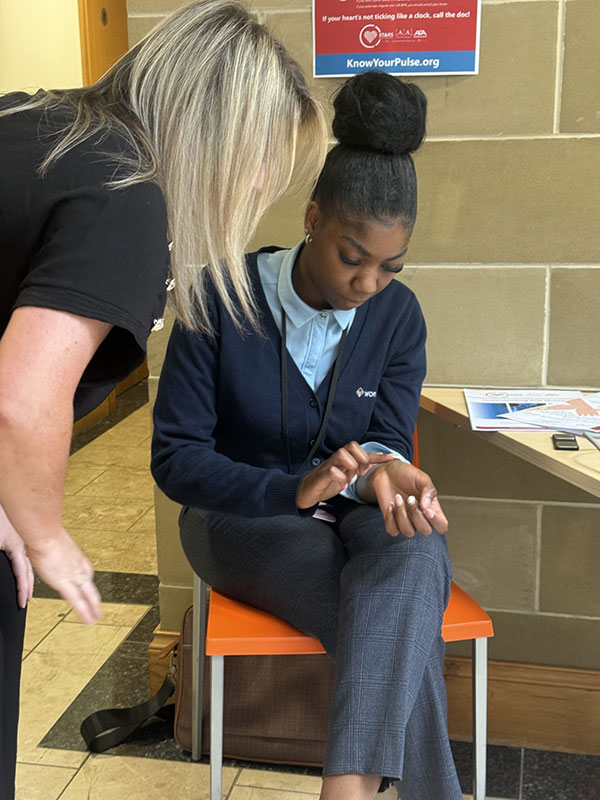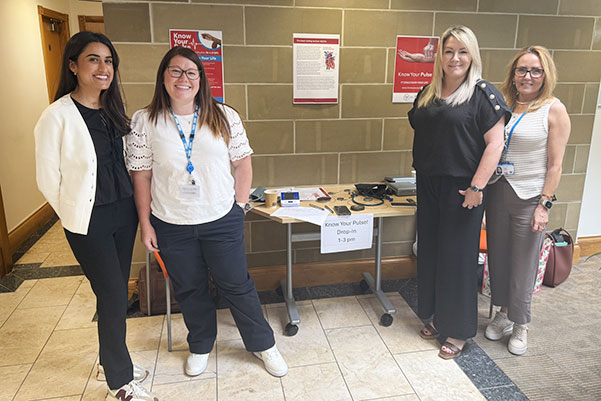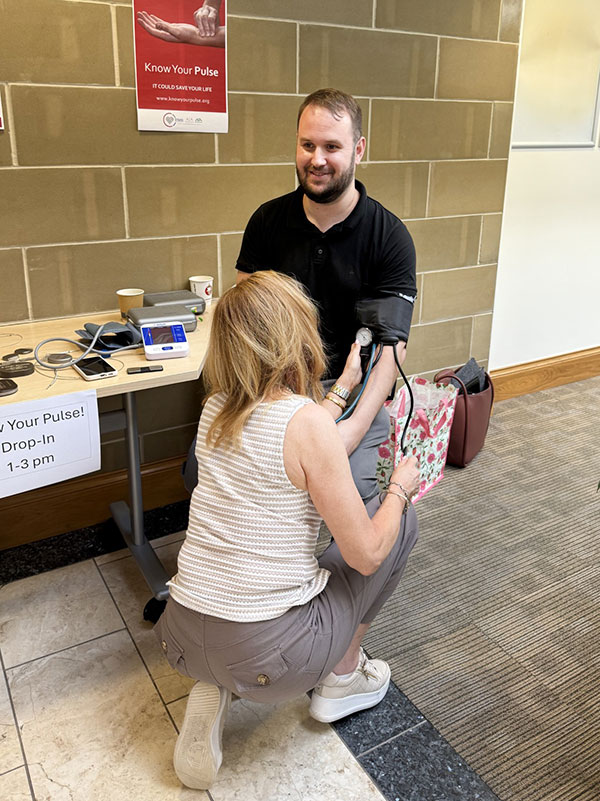If Your Heart Isn’t Ticking Like a Clock – Be Sure to Call the Doc
Drop-In Sessions at Our Carrwood Office
Know Your Pulse
To promote World Heart Rhythm Week, we held a Know Your Pulse drop-in event at our Carrwood Park offices on Monday 2 June. The event was facilitated by our Cardiology team and was focussed on our Cardiac Physiologists teaching colleagues how to take their pulse, including:
- Where to check?
- How to check?
- Is it regular?
- What speed is it?
- How to check for irregularities?
- Who to speak to if you have concerns regarding your cardiac health?
We will also had non-diagnostic electrocardiogram (ECG) recording and blood pressure (BP) monitors to support the self-awareness campaign.


World Heart Rhythm Week
World Heart Rhythm Week (WHRW) is a global campaign from the Arrhythmia Alliance Charity dedicated to increasing awareness of heart rhythm disorders (arrhythmias), their impact, and the importance of early detection and treatment.
The Know Your Pulse program promotes the need for us to be aware of our pulse and for the need to perform routine manual pulse checks. If pulse checks are routine, thousands of lives could be saved, and thousands of debilitating strokes could be prevented every year.
See our Useful Links section to find out more about The Know Your Pulse program.
Why Is World Heart Rhythm Week 2025 Important?
- Arrhythmias cause over 100,000 sudden cardiac deaths annually in the UK – more than 250 deaths every day, exceeding the combined total of deaths from breast cancer, lung cancer, and AIDS.
- Atrial fibrillation (AF), the most common arrhythmia, leads to 12,000 AF-related strokes each year – many of these strokes can be prevented with early diagnosis and appropriate anticoagulation therapy.
- By age 40, everyone has a 25% lifetime risk of developing AF, which increases the risk of stroke by 500%.
- 120,000 people experience unexplained loss of consciousness annually, which is often a sign of an undiagnosed heart rhythm disorder.
- 39% of children and 30% of adults diagnosed with epilepsy are misdiagnosed, with many actually having an underlying arrhythmia that could be fatal.
- Currently, there is no national programme for pulse checks or heart rhythm screening in the UK. WHRW2025 aims to raise awareness and advocate for the early detection of heart rhythm disorders to save lives.

The event allowed the clinical team to raise awareness of effective health protection skills by providing pulse checks at work. It spreads knowledge about silent heart conditions, like atrial fibrillation and demonstrated our concern for one another’s health. Events like these frequently start discussions that result in early diagnoses that can change lives. This small-time investment could have a life-saving effect on a person’s health.
Beverley Edwards, Cardiology Lead, NHS Supply Chain
Links section
-
Know Your Pulse
Know Your Pulse (KYP) program promotes the need for us to be aware of our pulse and for the need to perform routine manual pulse checks.
